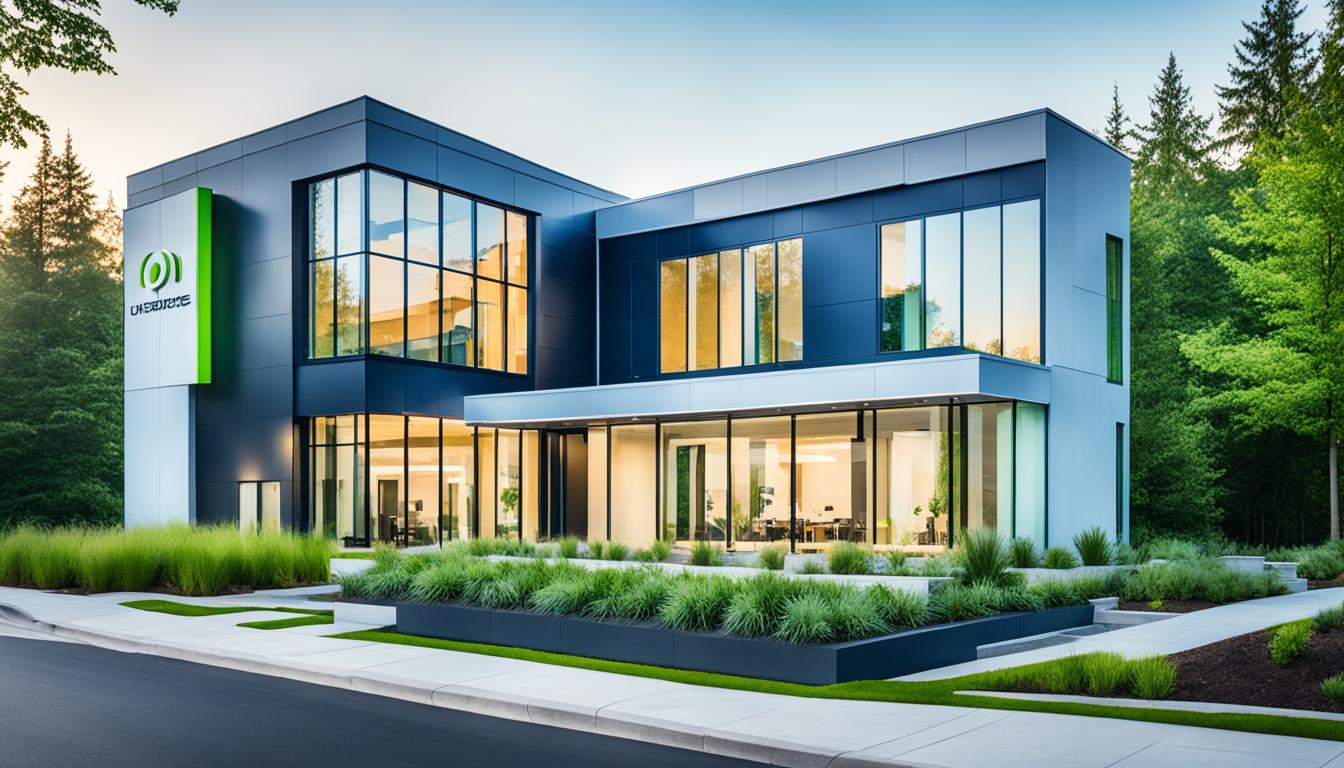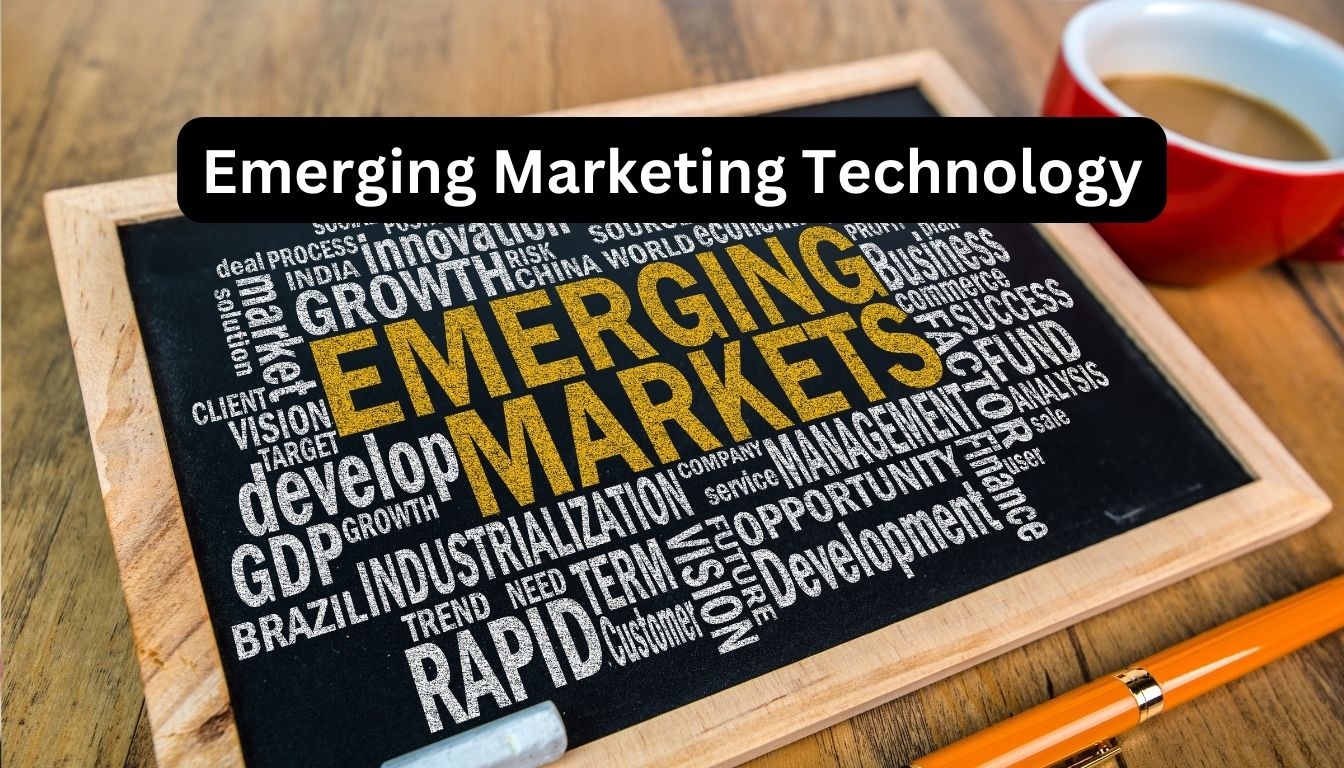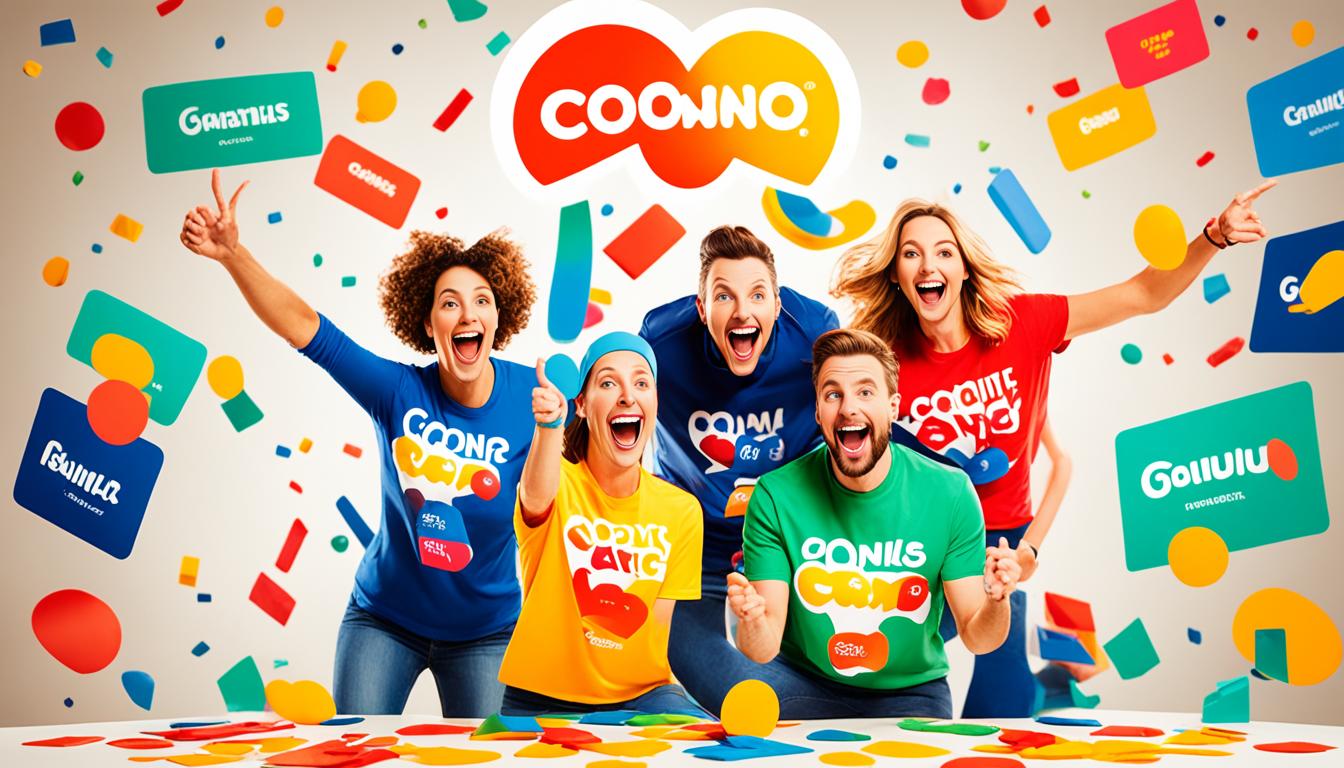Hyper-Local Marketing helps businesses focus on people in their area. They use local strategies to be seen more and attract local buyers. This method uses geo-targeted ads, location marketing, and other techniques to bring more people into stores.
For hyper-local marketing, being visible in your city and improving your online info are crucial. Optimizing your Google My Business and making content for “near me” searches can bring more local customers to you.
Diesel Cafe in Somerville, Massachusetts, shows hyper-local marketing success. They improved their Google My Business, talked about local happenings, and worked with local influencers. All these steps made them more known in their area.
Lamplighter Brewing Co. in Cambridge, Massachusetts, is another example. They plan unique local events and partner with nearby businesses. This helps them create a loyal local following.
Glossier, a beauty brand, also embraces hyper-local marketing. They adjust their messages and promotions for different cities. This approach makes customers feel special and connected to the brand.
Key Takeaways:
- Hyper-Local Marketing targets a specific audience within a local area.
- Optimizing Google My Business listings and creating hyper-local content are essential for success.
- Examples of companies implementing hyper-local marketing include Diesel Cafe, Lamplighter Brewing Co., and Glossier.
- Hyper-local marketing aims to raise foot traffic to physical locations by optimizing businesses for “near me” searches.
- City-specific outreach and local search optimization are key components of hyper-local marketing strategies.
What is Hyperlocal Marketing?
Hyperlocal marketing is a way to advertise that focuses on a nearby area. It aims to engage the audience looking for local searches. This method helps businesses draw more customers to their places, growing their audience and revenue.
Businesses customize their ads to match the local community’s needs and likes. They study the area and its people. This helps them make ads that the locals will like more, leading to better outcomes. By doing this, companies grab the attention of those searching for nearby products or services.
The growth of hyperlocal marketing is tied to more people using mobile devices. Smartphones make it easy for users to search for “near me” businesses. Thanks to such marketing, companies can show up more in searches and online lists. This way, it’s easier for people to find them.
Hyperlocal marketing also builds a stronger bond between businesses and the local community. Participating in local events and supporting community efforts helps in this. It makes the locals feel a part of something and loyal to the business.
Benefits of Hyperlocal Marketing
Hyperlocal marketing strategies offer many advantages:
- Increased foot traffic: By focusing on the local area, businesses attract more visitors. This leads to more sales and interactions.
- Higher conversion rates: “Near me” searchers often are ready to buy. By meeting these searchers’ needs, businesses boost sales.
- Improved visibility: Showing up in “near me” searches increases a business’s online presence. This makes them more noticeable in the local area.
- Stronger community relationships: By joining in local happenings, businesses connect deeper with people. This creates loyalty and trust.
Overall, hyperlocal marketing lets businesses precisely target their market. This approach improves visitor numbers and strengthens local connections. Businesses that leverage hyperlocal marketing can stay ahead and excel locally.
The Importance of Hyperlocal Marketing
Hyperlocal marketing is key in today’s online world. This is due to more people searching for local businesses online. Google has seen a big increase in these local searches.
With more people looking for local options, companies have a great chance. They can use hyperlocal marketing to attract people nearby. This approach helps businesses get more visitors and boost sales.
People doing “near me” searches want something close by. They’re likely ready to buy. Through hyperlocal marketing, businesses can show up in these searches. This makes it easy for potential customers to find them at the right time.
Hyperlocal marketing also raises brand awareness locally. It draws in those looking for local offers. By targeting their messages, companies can appeal directly to these customers.
In the end, hyperlocal marketing is a powerful strategy for reaching local buyers. It increases visitors and strengthens market presence. By focusing on hyperlocal marketing, businesses can succeed in their local areas.
Strategies for Hyperlocal Marketing
To succeed in hyperlocal marketing, businesses need to use some key strategies. These include making their Google My Business listings better, being easy to access, improving local search rankings, and writing content that speaks to local people.
Optimize Google My Business Listings
Improving your Google My Business listing is a smart move. Make sure your business info is correct, such as contact info, where you are, when you’re open, and what customers think of you. A good listing means more people can find you when they search for things “near me.”
Ensure Accessibility
Another smart move is making it easy for people to find and reach you. Show your contact info and where you are on your website and social media. This helps customers contact you and find your place. Plus, it improves their experience and gets them more involved.
Optimize for Local Search
Being easy to find in local searches is key. Use local keywords on your site, in meta descriptions, and headings. Also, your website should reflect your local area, with names of neighborhoods or city info. Keeping your site SEO-friendly helps people find you when they’re looking for local services or products.
Create Hyperlocal Content
Creating content for your local area works well too. Write about local events, famous spots, or anything special in your area. Work with local partners to share content that shows what’s great about your area. Content that fits your local audience’s interests can make your business a go-to resource and boost your presence in the community.
Optimize Your Google My Business Listing
Optimizing your Google My Business listing is key for winning in local marketing. It boosts your visibility. This way, more customers find you when they search for something nearby.
Relevant Keywords and Business Description
When you work on your listing, adding the right keywords is vital. Using words connected to what you do or sell helps people find you. This increases your listing’s chances of showing up when these words are searched for.
For instance, if your business is a bakery in New York City, use keywords like “bakery,” “New York City,” and “freshly baked goods.” Then, people searching for these will more likely see your listing.
High-Quality Photos
Uploading high-quality photos to your listing is also important. Photos show potential customers what to expect. They play a big role in attracting them.
Include pictures of your shop and what you sell. Make sure these images are clear, bright, and appealing. This makes a good impression and could make people choose you over others.
Accurate Categorization
Getting the category of your business right is crucial too. The right category helps Google understand your business better. It improves how well your listing matches with what people search for.
Take time to pick the most fitting categories. Think about what you offer. Picking the right ones helps your listing show up in relevant searches. This attracts the customers who are looking for what you provide.
To make your Google My Business listing better, do the following:
- Add relevant keywords in your business description
- Post high-quality photos
- Choose accurate categories
Using these tips will help you appear in local searches more often. This attracts people searching for something “near me” on Google.
Optimizing your Google My Business can highlight your business in local searches. It connects you with local customers seeking your products or services.
Ensure Accessibility
It’s crucial to make your contact info easy to find in hyper-local marketing. Clear and visible contact details on your website can spark direct talks. Make sure your location, phone number, and email are easy to spot, encouraging visitors to reach out.
Don’t forget to connect your contact details to your social media. This way, customers can contact you through different channels. This approach boosts your chances of engaging with them.
Talking about your proximity to known places can also draw customers. If people search for businesses near landmarks, showing how close you are can entice them to visit you.
Accessible business locations matter too. Think about parking, wheelchair access, and more. Features like these make it simpler for customers to reach you.
By highlighting accessibility and clear contact info, you welcome hyper-local customers. This creates a friendly environment that motivates them to connect with you.
Accessibility Checklist
| Accessibility Considerations | Action Required |
|---|---|
| Website |
|
| Proximity to Landmarks |
|
| Physical Accessibility |
|
Optimize for Local Search
Hyperlocal marketing is big. To win, make your site local search-friendly. Use smart strategies to appear in local search results. This attracts local shoppers and increases visits to your store.
URL Structure
URLs matter a lot for local marketing. Include hyperlocal keywords in your URLs. It shows search engines your site is perfect for local searches. This way, more locals find you when they’re searching online.
Hyperlocal Keywords
Using hyperlocal keywords on your site is key. They target your area and show search engines where you are. Put these keywords in your content, headings, and meta tags to show up in local searches.
Own a bakery in Seattle? Use keywords like “Seattle bakery” or “best bakery in Seattle.” This connects your bakery with Seattle in search engines. So, when someone looks for a bakery in Seattle, they find you.
Localized Content
Make your content scream local. Mention landmarks, neighborhoods, or events near you. It draws locals to your business because it feels familiar and close.
Navigational Ease
Your site should be easy to use. A well-organized site helps visitors and search engines. Create clear sections for different parts of your business. This makes your site better for users.
Boost your local search ranking to reach more nearby customers. Include hyperlocal keywords everywhere from URLs to headings. Also, make your website simple to explore. Doing this will get you seen in local searches, attract area customers, and increase visitors to your shop.
Create Hyperlocal Content
Creating content that focuses on your local community is key in hyper-local marketing. By adding local events, famous spots, or attractions to your content, it becomes more engaging. This helps draw in potential customers who are nearby.
One great idea is to blog about local festivals and community events. Cover these happenings and provide useful details. This way, you catch the attention of locals who want to join in.
Showing images of your business at local events also works wonders. It could be you helping at a local charity, joining community activities, or just attending local meet-ups. It shows you care and are part of the local scene.
You can also talk about the history and important facts of local landmarks. Share stories and special things about these places and their ties to the community. This adds an interesting layer to your content.
Plus, don’t forget about networking locally. Go to business gatherings in your area or team up with nearby businesses. This creates strong content that highlights your business and marks your spot in the community.
In the end, hyperlocal content strengthens your bond with local folks and boosts engagement. By focusing your content on local interests and needs, you connect better with those around you.
Targeted Search Advertising
Targeted search advertising is key in hyperlocal marketing. By using specific keywords and optimizing your ad, you can catch the eye of people looking for local products or services. This method brings in traffic that’s more likely to buy from you.
Finding the right keywords that match your business and location is critical. Targeted keywords help your ads show up for people ready to buy what you’re selling. This captures their interest and encourages them to act.
It’s also important to make your ad copy hyperlocal. Use language that speaks of your area or mention local spots. This builds a connection with your audience. Your ads become more appealing and are more likely to get clicks.
By using hyperlocal marketing strategies in search ads, you attract people ready to buy. Customized ads increase the chances they’ll consider what you offer. This method is ideal for reaching customers nearby who want your products or services.
Let’s see an example of how powerful targeted search advertising can be:
| Targeted Keyword | Ad Copy |
|---|---|
| Local coffee shop | Get your daily caffeine fix at Coffee Haven, the best local coffee shop in town! Located in the heart of the city, we serve freshly brewed coffee and delicious pastries. Visit us today! |
| Organic grocery store | Discover the freshest organic produce and natural products at Green Earth Foods, your neighborhood’s go-to organic grocery store. Conveniently located near you, shop with us for a healthy lifestyle! |
| Local yoga studio | Unwind and rejuvenate at Serenity Yoga Studio. Our experienced instructors will guide you through relaxing yoga sessions in our peaceful and welcoming studio. Find your inner zen today! |
In the example, each ad targets a specific business and location. The ads are designed to attract local customers by highlighting what makes these places special.
Using targeted search advertising lets businesses reach local audiences effectively. This focused approach boosts brand visibility, ups conversions, and helps your business grow.
SMS Marketing and Email Marketing
SMS and email marketing are great for hyperlocal marketing strategies. They help businesses connect with local customers. This boosts foot traffic to their stores.
**SMS marketing** quickly delivers local offers to potential customers. Since **SMS messages** are often read, your message reaches many people. Well-crafted SMS campaigns catch local customers’ interest, encouraging them to act.
Benefits of SMS Marketing:
- High open and response rates
- Instant delivery and quick reach
- Ability to send time-sensitive promotions
- Direct and personalized communication
- Cost-effective compared to traditional advertising methods
**Email marketing** excels in hyperlocal marketing too. By sorting customers by **location**, businesses can send them local offers. This makes people more likely to engage and visit the store.
Benefits of Email Marketing:
- Ability to deliver targeted and personalized content
- Cost-effective and scalable
- Enables tracking and analysis of customer engagement and conversion rates
- Allows for automated campaigns based on customer behavior and demographics
- Enhances brand loyalty and customer relationships
Using SMS and email marketing boosts visibility and engagement with local customers. Sending them relevant content motivates them to visit your store.
Location-Based Advertising and OOH Advertising
In today’s world of marketing, location-based and OOH (out-of-home) advertising are key. They help boost marketing efforts and reach people effectively. By using location data and mobile tech, these ads are shown in busy local areas. This increases a brand’s visibility and brings more people to stores.
Location-based advertising lets businesses send ads based on where users are or have been. This means the right deals reach the right folks. It targets consumers in precise local spots, like a certain street or area. This approach leads to better marketing campaign results.
OOH advertising uses mobile location tech to place ads in busy local spots. Ads are put in places like billboards and bus stops to grab attention. This works well in busy areas, giving businesses a chance to connect with local people.
Benefits of Location-Based Advertising and OOH Advertising
These advertising strategies offer big benefits for companies:
- They make a business more visible locally by targeting specific areas.
- Ads in busy spots can draw more people into stores.
- Location data helps target ads more precisely for better results.
- Placing ads in the right places enhances a brand’s local image.
So, using location-based and OOH advertising is smart for hyper-local marketing. They help businesses connect with their audience and achieve real success.
Conclusion
Hyperlocal marketing is a strong tool for businesses aiming at local customers. It mixes optimizing Google My Business, creating area-focused content, and using targeted search ads. This way, companies become more visible online to people looking for local products and services.
This strategy also uses SMS, email, and location-based ads to directly reach local buyers. With personalized offers, businesses can attract more people to their stores. This strengthens the bond between a business and its customers.
When businesses cater to local tastes and needs, they become a trusted part of the community. Hyperlocal marketing lets businesses effectively target their audience. It boosts brand recognition and brings more local shoppers to their doors.





